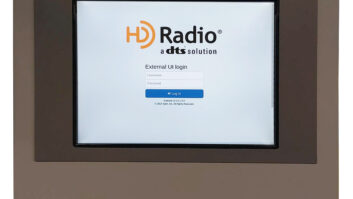A theory that’s gaining momentum is that our time is running out to get the public interested in HD Radio. There have been numerous letters to the editor in this very publication where readers compare HD Radio to AM stereo technology. It sounded pretty good if you ever got the chance to hear it, but so what?
Here’s a news flash: Assuming the public can receive the signal, HD Radio is not really about the technology. It’s about the content.
AM stereo had a serious flaw: it lacked original content. Sure, the music sounded better on AM stereo than standard AM radio, but FM had already won that battle. Let’s not make the same mistake with HD Radio.
Niches
Four years ago, three things drove radio to create brand extensions on the then-new HD Radio dial: technology, paper diaries and laziness. Many people don’t understand this, so please permit me to offer an explanation.
First, technology: The approach in the United States of creating digital radio — on-band, in-channel — gave us HD-R channels next to our main frequencies on the new receivers.
Next, paper diaries demanded we create brands that listeners could recall to write down and hopefully confuse with our main channels, so that we might actually improve our ratings.
Finally, it’s much easier to create a format brand extension than a totally different format. If the main channel was country, the next HD Radio channel was destined to be classic country. If the main channel was new rock, the HD Radio channel would be classic rock.
Typically, the same program director had enough expertise in the genre to do the main channel and the brand extension. It’s worked out great for companies in terms of saving time and money. Sadly, it’s done little to excite the person we should care about: the consumer.
Certainly I know there are some stellar exceptions. For the most part, however, I advocate that the time has arrived to ditch HD Radio brand extensions.
The ideas that interest me most are the ones that will get consumers talking about HD Radio and purchasing receivers. Contrary to what many believe, they won’t be buying receivers for the great sound quality. They’ll be buying those receivers because they can hear programs, shows and formats for free that they can’t get anywhere else.
There’s no question that there is an appetite for niche formats, which satellite radio has done an excellent job of serving. Brand extensions on HD Radio could easily be replaced by niche music stations: blues, bluegrass, various forms of jazz, world music and acoustic/folk. These niche formats in themselves will certainly draw in listeners. However, because satellite radio had beaten HD Radio to the punch, it’s unlikely these niche formats will create much of a buzz in terms of getting consumers talking or reporters blogging.
To create HD Radio formats that get people excited, we will have to take chances not taken since long-haired kids played their own records on the new FM dial in 1967.
Here’s another news flash: We will need new talent to create these significantly different music and talk formats. We need young people in our business who don’t understand — or even care about — the format rules we have codified over the last 40 years.
Before you get scared, consider that if you are an FM HD Radio station, you have multiple HD Radio channels. Can’t you use one as a format incubator? Maybe you try blocks of time on that one channel with different concepts, until one emerges the winner by listener demand.
I would be remiss if I did not also advocate — as I have in past articles — that every company lease at least one HD Radio channel in every major city to a university. Let their students play live music and present classroom lectures and debates — things that used to exist on the early FM “community stations” that were gobbled up later by religious broadcasters and NPR affiliates.
With our country’s new political era and economic challenges, markets may even be riper for innovation of this kind.
No budget for new content on your HD Radio channels? If that’s the case, let someone else take a chance with your digital spectrum.
Don’t let your station atrophy by continuing to air that automated brand extension … right up until the day you switch off the transmitter because nobody is listening.
The author is president, Lapidus Media. Contact:[email protected].











